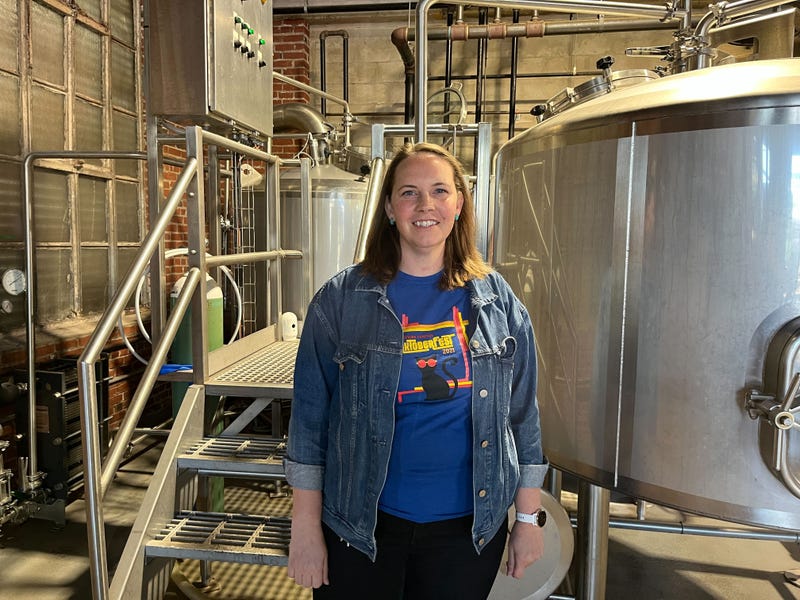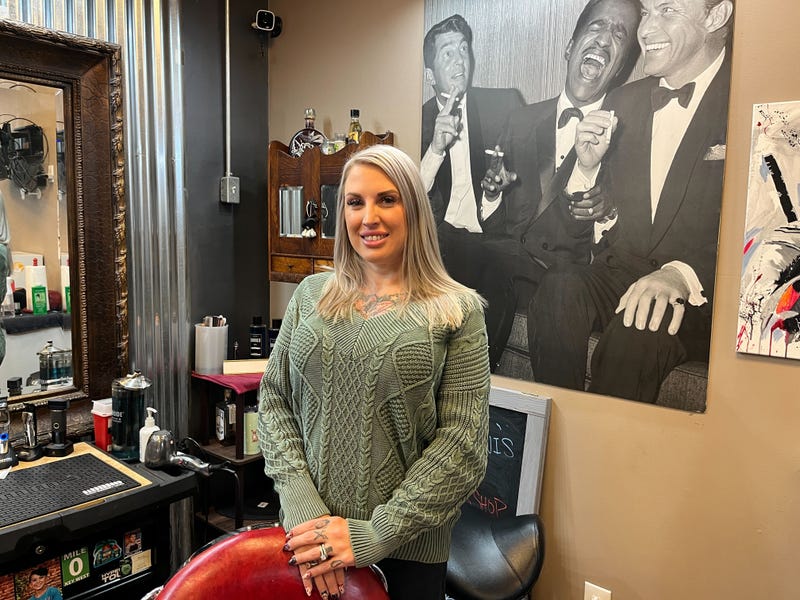
PHILADELPHIA (KYW Newsradio) — The midterm elections are less than a week away and the economy is front and center for many voters. In particular, it’s been a roller coaster for small business owners who have been fighting to survive since the COVID-19 pandemic started.
When COVID-19 restrictions were in effect in 2020, businesses deemed essential could stay open, while others could not. The economic impact of decisions like those continues to have an effect on the political landscape in Pennsylvania and across the country.
Laura Lacy, opened up Attic Brewing Company in Germantown in January 2020 with high hopes.
“With the goal of building a destination brewery, somewhere people could come,” Lacy said. “We built a beautiful taproom, and brew our beer on site. We were open for about eight weeks.”
Then the pandemic hit, and she had to shut down her business. And to make matters worse, her PPP loan was not forgiven over a technicality.
As a result, she says, she is more politically outspoken these days.
“We’ve reached out to our elected officials to try to get their support and help, but really going and looking at November for us, it’s about voting for policy makers who understand the true needs of small business,” said Lacy.
Three small-business owners she knows have decided to close in the last month alone, she said.
The coronavirus forced Kym Ramsey to close her day care facility in Norristown. They have since reopened, maintaining a presence on the front lines of the pandemic, but they are still feeling the effects today.
“We have returned to about 55 children out of 132 that I can receive. And out of 28 employees, I only have 12,” Ramsey said.
“It has really hit us. The primary reason is that we’re not able to increase our wages to compete with big businesses.”
In Center City, 276 businesses were boarded up in 2020 from March through June, according to the Center City District, and 220 of those businesses re-opened in the three subsequent months.
On the other hand, there was John Duesler Jr.’s drone business, Kaze Aerial Production. With no spectators allowed at sporting events, they were able to thrive.
“It was a springboard for the networks to realize that the drone gives amazing pictures,” said Duesler. “We were showing events like they’ve never been seen before.”
Duesler says he didn’t take PPP money. And he didn’t like hearing about healthy companies getting piles of money, either. As he sees it, overwhelming government aid weakens the nation’s competitive edge. He says he would support officials who want to invest more in community colleges where — for example — future drone pilots could be trained.
“If they were to be able to provide more funding, more support, and just an awareness — and give it more credibility with these specialized programs — I think that would go a long way,” he said.
Ramsey said the deep partisan divide of the American political landscape does no one any good, and small-business owners need politicians on their side.
“There are a lot of politicians out there,” said Ramsey. “And it doesn’t matter if they’re Republicans or Democrats. It doesn’t matter. They all need to understand that small businesses need support now. Actually, yesterday.”
Defiance turns to action
When COVID restrictions forced barber shops and salons to shut their doors, Nichole Missino, owner of Giovanni’s barber shop in downtown Media, couldn’t pay her employees.
“Well, what about the people that are in my building that are gonna be starving next week?” she recalls thinking at the time.

Her frustration led to action.
“We staged a protest,” she said. “And then, two weeks later, we decided that we were opening. So, we opened at 10 weeks in. We stayed open the entire time.”
They stayed open in direct defiance of the state health department. And that protest she mentioned was a turning point.
“I was never interested in politics. I voted for the president, and that’s it. I was registered as an Independent,” Missino said. “On the day of my protest, I had a bunch of leaders reach out to me from the Republican Party. Came to my protest, stood on my steps and rallied with me.”
She was far from alone as a “reopen” movement gained steam. That was especially notable in school board races.
Eventually, she decided to run as a Republican for state representative of the 165th legislative district, in Delaware County.
“I just want to fight for everybody’s freedoms. That’s my main thing on my platform right now — fighting for freedom,” she said. “I’m also an unconventional candidate for unconventional times.”
She’s up against incumbent Democrat Jennifer O’Mara, who was first elected in 2018. Her campaign staff declined KYW Newsradio’s request for an interview, but they returned with a statement.
“Now more than ever, we need serious people in office who are willing to work with anyone to actually get things done and listen to the needs of their constituents,” it read, in part.
Other business owners supported restrictions
While small business owners like Missino fought to reopen, against COVID restrictions, Francis Cratil-Cretarola supported the restrictions — and he says he has no regrets doing so, even if it meant losing money.
“The very idea that people would have endangered their lives — and talking about the original iterations of the virus before there was a vaccine — because they were serving pasta or wine is absurd,” Cratil-Cretarola said.
He and his wife own Le Virtu on East Passyunk Avenue in South Philadelphia. He says the government’s handling of the pandemic reinforced their beliefs, and they’re not shy about sharing their stance, even on the restaurant’s Facebook page.
“We’ve been open about our support, for example, for Shapiro and Fetterman, and dedicated some of the profits from a couple of nights to their campaigns,” he said.
Somewhere between Missino and Cratil-Cretarola are some of the business owners who Jabari Jones works with. He’s president of the West Philadelphia Corridor Collaborative.
They are paying more attention, Jones says, because of how the pandemic affected their livelihoods — “because, if you think, all of the economic relief dollars from Washington — to the grants that were administered on the city level, to regulation changes — all came through the political system.”
And so, he encourages businesses in his district to give their employees the time to get out and vote on Election Day.
Related Podcast





